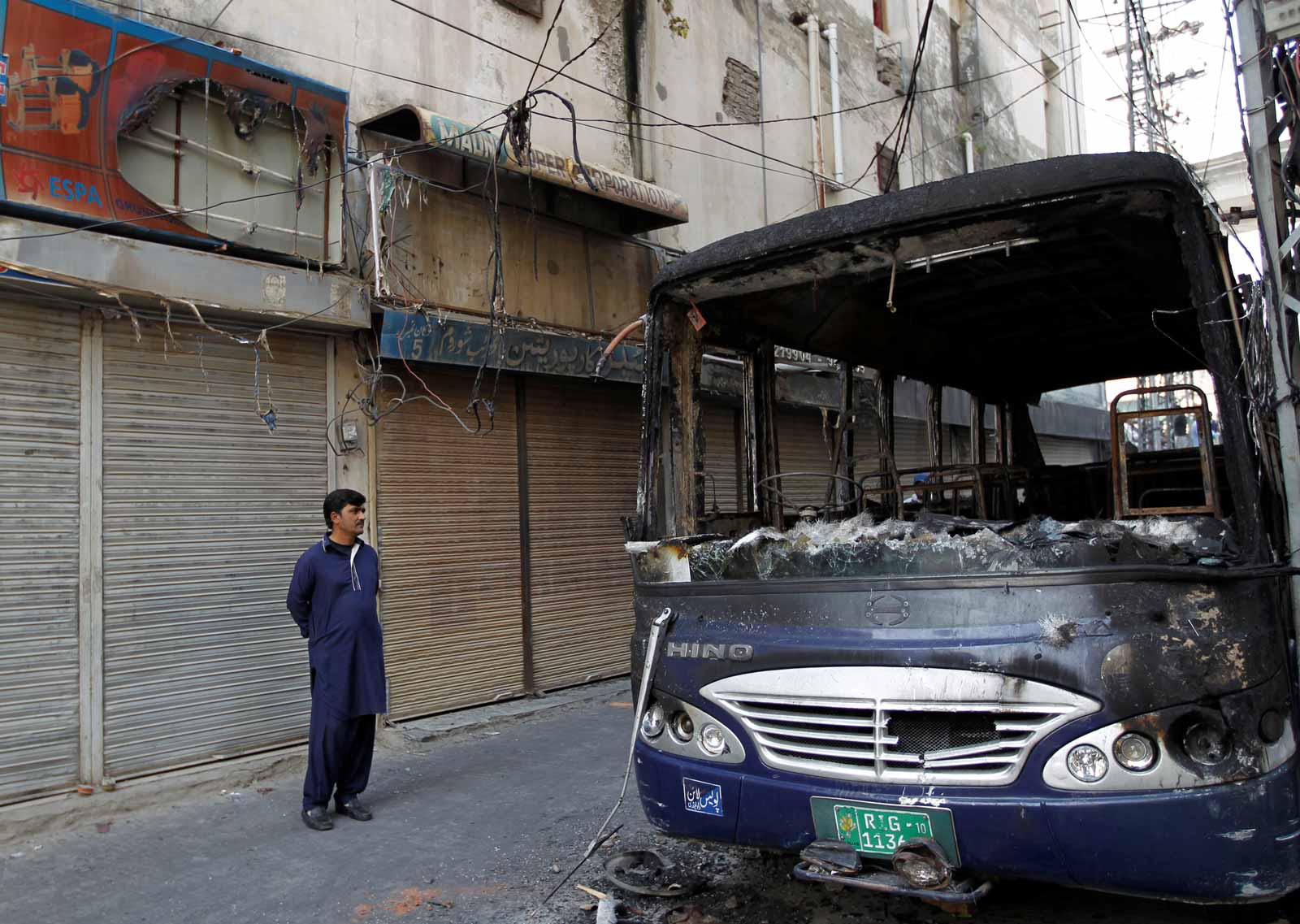by AHMED RASHID
 A man looking at a police bus that was destroyed during clashes between Islamist protesters and police around Islamabad’s main highway, Pakistan, November 26, 2017 PHOTO/Caren Firouz/Reuters
A man looking at a police bus that was destroyed during clashes between Islamist protesters and police around Islamabad’s main highway, Pakistan, November 26, 2017 PHOTO/Caren Firouz/Reuters
Pakistan has largely escaped the ghastly destruction of the civil wars in the Middle East—despite its continuing struggle with homegrown Islamist extremism and terrorism. Since September 11, 2001, Pakistani governments have tried to fly under the radar, attracting minimal international pressure even though its territory has been used as a sanctuary by the Afghan Taliban, al-Qaeda, Kashmiri militants, and other extremists from the region. But the US and NATO have now begun to express their concerns.
The international community is worried because there is a growing domestic political crisis in this nuclear-armed nation that is fueled by extremists at home and by a foreign policy that involves harboring insurgent groups, which has become unacceptable to the world as well as to Pakistan’s neighbors in South Asia. President Donald Trump and NATO have clearly signaled they will no longer tolerate the Pakistani army’s alleged duplicity—that while it fights those terrorists who threaten the state of Pakistan, it shelters outside groups like the Afghan Taliban, which does its fighting elsewhere. Pakistan’s response is to accuse the Americans of looking for scapegoats, having lost the war in Afghanistan.
The Pakistani “miltablishment”—a name coined by the weekly Friday Times that describes the alliance between the army, its all-powerful Inter-Services Intelligence agency (ISI), the senior judiciary, the government bureaucracy, and some politicians—is now deeply at odds with itself. A power vacuum has developed into which has stepped a bewildering array of Islamist extremists. The future of Pakistan itself is at risk.
During a harrowing three weeks in November, a small, almost unknown fringe group of well-armed Sunni militants blocked the capital Islamabad’s main highway and demanded the resignation of the justice minister and other officials for trying to change the stringent blasphemy law and for being sympathetic to the Ahmadis, a Muslim sect controversially proscribed by the state. The group, which calls itself Tehreek-e-Labaik (TEL), or the Movement in Service to the Finality of the Prophet, then ordered its followers to block major roads all over the country. For several days, traffic across Pakistan ground to a halt. Six or seven people were killed and more than two hundred were injured.
As public speculation grew about which part of the “miltablishment” was allowing food, water, and blankets to reach the militants, the government seemed paralyzed—unwilling to act decisively or to send in the 8,000 police officers at its disposal to arrest those mounting the blockades, who never numbered more than 3,000 in Islamabad. At long last, the government called in the army to clear the barricades. But none of the militants was arrested, and when the army arrived, it was to broker a deal, which the militants quickly accepted—and to which the government, too, was obliged to accede.
The entire episode had the air of a well-rehearsed drama. The army and the government gave in to all the militants’ demands, including the resignation of the justice minister, the release of all the group’s prisoners, compensation to the protesters, and further entrenchment of the harsh blasphemy law. An ISI general signed the agreement as its “guarantor.”
The New York Review of Books for more
(Thanks to reader)
